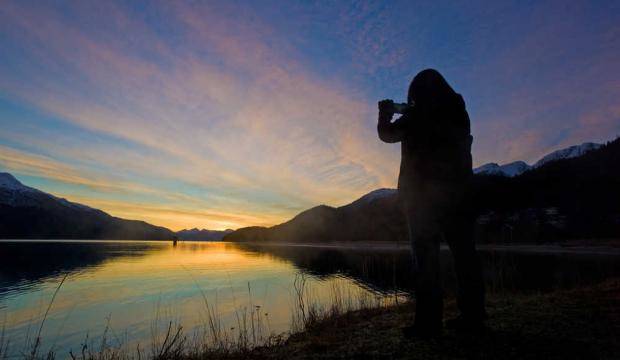“For we are sowing winter wheat
That other hands will harvest
That they might have enough to eat
After we are gone …”
— Libby Roderick
“Alaska is not causing climate change,” Assistant Attorney General Sean Beausang said in state Superior Court on Monday. It’s one of several arguments for dismissing a lawsuit filed by 16 young Alaskans who claim the state is failing to limit greenhouse gas emissions. They may hope to halt the planet’s rising temperatures. But because Beausang is right, to succeed they’ll have to convince the anti-regulatory crusaders all the way back to the nation’s capital.
The complaint isn’t new. In 2011, a similar suit filed by six teenagers was dismissed. In that case, the judge ruled the regulatory controls necessary to reduce emissions should be determined by the governor and legislature, not the judiciary. In upholding that decision, the state Supreme Court stated it couldn’t offer an opinion about how either branch should weigh the competing interests of employment, resource development, power generation, health, culture, or other economic and social concerns.
In the years since, “the state has not taken any meaningful action to address the effects of its fossil fuel and greenhouse gas emissions policy,” attorney Brad DeNoble argued for the plaintiffs on Monday. That’s one reason they’ve turned to the courts. Another was the rejection of a petition that requested the Department of Environmental Conservation (DEC) regulate the sources of carbon dioxide emissions, including the extraction of fossil fuels.
“We believe this hearing today is an important first step in the court preserving these constitutional rights.” Those include a due process complaint with DEC, and “the right to a stable climate system,” which the lawsuit contends is essential to sustaining human life and liberty and a natural resource to be protected in accordance with the public trust doctrine in Alaska’s Constitution.
The Constitution doesn’t explicitly address climate. Indeed, when it was ratified in 1956, scientific research on the subject was in its infancy. The first public document that suggested fossil fuel emissions “may have a significant effect on climate” was published in 1965 by President Johnson’s Science Advisory Committee.
Five years later, Congress passed the National Environmental Policy Act to address more immediate pollution problems. By executive order, President Richard Nixon established the Environmental Protection Agency. When Congress ratified that, the federal government had the regulatory power to clean up and protect America’s air and water resources.
But by 1979, President Jimmy Carter was telling Americans the regulatory system had become a burden we couldn’t afford. And in his 1981 inaugural address, President Ronald Reagan declared his intention to shrink the size and influence of the federal establishment. One of his primary focuses was eliminating EPA regulations. And the EPA administrator he appointed brought on staff from the industries it was charged with regulating.
I thought about this history last week in Juneau when Libby Roderick referred to the climate change plaintiffs before she performed her song tilted “Winter Wheat.” I was their age when the national environmental legislation was gaining steam. At the time I never envisioned they’d be rolled back. Or that a newer battle would encompass the entire globe.
Roderick, who is a few years younger than me, has been a champion for a cleaner planet her whole adult life. She explained the song was inspired by a letter Elizabeth Cady Stanton wrote years ago during the women’s suffrage movement. It’s meant to convey the message that, because it’s unlikely such problems will be resolved during an activist’s lifetime, the ideas are seeds for a new generation who will carry the torch “after we are gone.”
It’s a good metaphor. But it applies to both sides of the debate. Some of the resistance to new, emission reducing regulations was sown by advocates for small government during the Reagan years.
The competing interests articulated by the Supreme Court in the prior case didn’t mention that political philosophy. But many who believe excessive government regulation is a greater threat to liberty are no less passionate about their cause. It’s why the kids suing the state for neglecting climate change today should know committing to a lifetime of activism is more important than winning in court.
• Rich Moniak is a Juneau resident and retired civil engineer with more than 25 years of experience working in the public sector. He contributes a regular column to the Juneau Empire. My Turns and Letters to the Editor represent the view of the author, not the view of the Juneau Empire.

